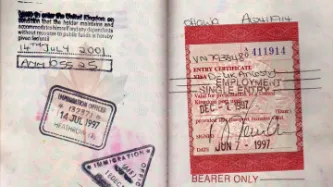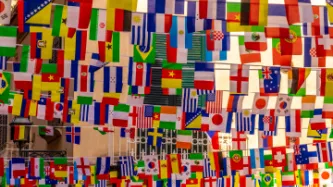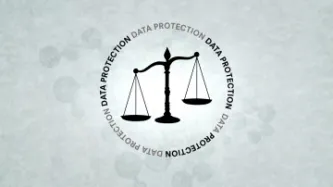Advanced Search
Content Type: Advocacy
On 3 July 2025, the General Conference of the International Labour Organization (ILO) adopted a resolution committing the ILO to adopt a Convention supplemented by a Recommendation concerning decent work in the platform economy following a second discussion on this issue in 2026. PI welcomes the ILO's decision as a step in the right direction to protect platform workers who have been at the forefront of new forms of data exploitation in the workplace as we have been documenting for many…
Content Type: Advocacy
In May 2024, we made a submission for the forthcoming report of the UN Special Rapporteur on the right to education to the General Assembly in October 2024.
Amongst others we recommend the UN Special Rapporteur for this upcoming report to:
Underline the need for a human rights-based approach to all AI systems in the education sector and describe the necessary measures to achieve it.
Reassert that any interference with the right to privacy and the advancement of the right to education due to…
Content Type: Long Read
Social media is now undeniably a significant part of many of our lives, in the UK and around the world. We use it to connect with others and share information in public and private ways. Governments and companies have, of course, taken note and built fortunes or extended their power by exploiting the digital information we generate. But should the power to use the information we share online be unlimited, especially for governments who increasingly use that information to make material…
Content Type: News & Analysis
In a ruling handed down on 14 October 2021 by the High Court of Kenya in relation to an application filed by Katiba Institute calling for a halt to the rollout of the Huduma card in the absence of a data impact assessment, the Kenyan High Court found that the Data Protection Act applied retrospectively.
Background to the case
Huduma Namba as initially proposed
In January 2019, the Kenyan Statute Law (Miscellaneous Amendment) Act No. 18 of 2018 came into effect, introducing a raft of amendments…
Content Type: Long Read
What if your boss was an algorithm? What would you do if your employer suddenly fired you or reduced your pay without telling you why? And without being willing to give you a reason when you ask for one?
This is not science fiction or some far-fetched reality. Millions of people worldwide are working in the gig economy sector for companies like Uber, Deliveroo, Bolt, Just Eat… And this could be the future of work for people working outside the gig economy, as surveillance technologies are…
Content Type: Video
Update: Pa has since won a settlement from UberPlease note the views expressed in the video are interviewee's own and do not necessarily reflect the views of PI.Pa used to work for Uber. After some time, Uber started asking him to submit a picture of himself to the platform to confirm it was indeed him who had completed the job. However, with time, the frequency of the requests increased. In the beginning, the requests for a picture only happened once a week, but as time went by Pa told us that…
Content Type: Advocacy
On 6 August 2021, the World Health Organisation (WHO) published its technical specifications and implementation guidance for “Digital Documentation of COVID-19 Certificates: Vaccination Status” (DDCC:VS) following months of consultations. As governments around the world are deploying their own Covid-19 certificates, guidance from the global health agency was expected to set a global approach, and one that prioritises public health. As such, we would expect the WHO to identify what these…
Content Type: News & Analysis
An excerpt of this piece was first published in June 2020 in Adbusters, an international not-for-profit magazine produced by a global collective of artists and activists who want to 'shake up complacent consumer culture'.
Big oil. Big tobacco. Big pharma. How did we let ‘big tech’ happen? You would have thought humanity would learn its lesson. That nothing good comes of the mass accumulation and concentration of power into the hands of so few.
The internet was meant to be different. No…
Content Type: Advocacy
International data transfers are an important feature of the present-day global economy. However, when crossing borders, data should also be accompanied by strong and effective privacy and personal data protections. Laws, such as the General Data Protection Regulation (GDPR), play an important role in ensuring data flows respect with privacy.
Trade negotiations that cover cross-border data flows can complicate this. All 80 countries that are part of digital trade negotiations should be able to…
Content Type: Long Read
An edited version of this article was originally published on the EDRi website in September 2020.
Introduction
Monopolies, mergers and acquisitions, anti-trust laws. These may seem like tangential or irrelevant issues for privacy and digital rights organisations. But having run our first public petition opposing a big tech merger, we wanted to set out why we think this is an important frontier for people's rights across Europe and indeed across the world.
In June, Google notified the…
Content Type: News & Analysis
Banning TikTok? It's time to fix the out-of-control data exploitation industry - not a symptom of it
Chinese apps and tech companies have been at the forefront of the news recently. Following India's ban of 59 chinese apps in July, President Trump announced his desire to ban TikTok, shortly followed by his backing of Microsoft's intention to buy the US branch of its parent company ByteDance. Other than others lip syncing his public declaration, what does President Trump fear from this app, run by a firm, based in China?
It's all about that data
One clear answer emerges: the exploitation of…
Content Type: News & Analysis
New technologies continue to present great risks and opportunities for any users but for some communities the implications and harms can have severe consequences and one of the sectors facing increasing challenges to keep innovating whilst protecting themselves and the people they serve is the humanitarian sector.
Over the course of engagement with the humanitarian sector, one of our key observations has been how risk assessments undertaken in the sector omitted to integrate a hollistic…
Content Type: News & Analysis
In September 2019, PI published the report Your Mental Health for Sale. Our investigation looked into popular mental health websites and their data sharing practices.
Our findings suggest that, at the time of the research, most websites we looked at were using third party tracking for advertising purposes, sometimes relying on programmatic advertising technologies such as Real Time Bidding (RTB), sharing personal data with potentially thousands of actors. Some websites were also found sharing…
Content Type: Long Read
Introduction
In August 2019, when Facebook announced a few new features for advertisers such as ads in search, PI decided to take an in-depth look at what features the company offers its users when it comes to understanding its advertising practices. One of these features, which caught our attention is Facebook Ads Preference, a tool that among other things, lists businesses/advertisers that have uploaded your personal data to target you with (or exclude you from) ads on the platform.
Content Type: Advocacy
Last week, Privacy International joined more than 30 UK charities in a letter addressed to the British Prime Minister Boris Johnson, following his recent declaration, asking him to lift No Recourse to Public Funds (NRPF) restrictions.
Since 2012, a ‘NRPF condition’ has been imposed on all migrants granted the legal right to live and work in the UK. They are required to pay taxes, but they are not permitted to access the public safety net funded by those taxes.
This is not a topic we are known…
Content Type: News & Analysis
Political campaigns around the world have turned into sophisticated data operations. They rely on data- your data- to facilitate a number of decisions: where to hold rallies, which States or constituencies to focus resources on, which campaign messages to focus on in which area, and how to target supporters, undecided voters, and non-supporters.
While data driven political campaigns are not new, the granularity of data available and the potential power to sway or suppress voters through that…
Content Type: Case Study
In Peru, you get asked for your fingerprint and your ID constantly - when you’re getting a new phone line installed or depositing money in your bank account – and every Peruvian person has an ID card, and is included in the National Registry of Identity – a huge database designed to prove that everyone is who they say they are. After all, you can change your name, but not your fingerprint.
However, in 2019 the National Police of Peru uncovered a criminal operation that was doing just that:…
Content Type: Long Read
We are excited to spotlight our Reproductive Rights and Privacy Project!
The Project is focused on researching and exposing organisations that collect and exploit the information of those seeking to exercise their reproductive rights. Working together with PI partners, other international grassroots organisations and NGOs, PI is researching and advocating against this data exploitation.
So, what are reproductive rights?
Sexual and reproductive rights, which are contained within Economic,…
Content Type: Video
Video courtesy of CPDP (https://www.cpdpconferences.org/)
What is the impact of online gender-based violence on survivors? What should be the role of companies in fighting this phenomenon? What is the link between the right to privacy? In this panel, which took place at CPDP in February 2019, academics, civil society and government representatives discuss the issue of online gender based violence with a privacy lens.
Chair: Gloria González Fuster, VUB -LSTS (BE)
Moderator: Valerie…
Content Type: Impact Case Study
What HappenedOn 5 June 2013, The Guardian published the first in a series of documents disclosed by Edward Snowden, a whistleblower who had worked with the NSA. The documents revealed wide-ranging mass surveillance programs conducted by the USA’s National Security Agency (NSA) and the UK’s Government Communications Headquarters (GCHQ), which capture the communications and data of hundreds of millions of people around the world. In addition to revealing the mass surveillance programs of the NSA…
Content Type: Impact Case Study
What happenedIn the aftermath of 9/11, Governments across the world rushed to legislate to expand surveillance. GovernmentsMoved to limit debate and reduce consultations as they legislated with speed.Created new systems to collect data on all travellers, for the purpose of profiling and risk scoring.Expanded identity schemes, and began demanding biometrics, particularly at borders.Developed financial surveillance mechanisms on an unprecedented scale.What we didFew non-governmental…
Content Type: Impact Case Study
What is the problem
In the 1990s privacy was often maligned as a ‘rich Westerner’s right’. We were told often that non-Westerners didn’t need privacy and had different cultural attitudes and would greet surveillance policies and technologies — often exported from the West.
Global civil society was composed mostly of a few individuals with no resources but great passion. The larger and more established NGOs, such as consumer and human rights organisations were less interested in ‘digital’ and ‘…
Content Type: Impact Case Study
[Photo By Ludovic Courtès - Own work, CC BY-SA 3.0] Last update: 14 December 2022What is the problem and why it is importantUntil the early '10s, the right to privacy had been sidelined and largely unaddressed within the UN human rights monitoring mechanisms, despite being upheld as a fundamental human right in the Universal Declaration of Human Rights and the International Covenant on Civil and Political Rights (ICCPR).Beyond the ICCPR General Comment No.16: Article 17 (…
Content Type: Impact Case Study
What happenedStrong and effective data protection law is a necessary safeguard against industry and governments' quest to exploit our data. A once-in-a-generation moment arose to reform the global standard on data protection law when the European Union decided to create a new legal regime. PI had to fight to ensure it wasn't a moment where governments and industry would collude to reduce protections.In January 2012, the European Commission published a proposal to comprehensively reform the…

























